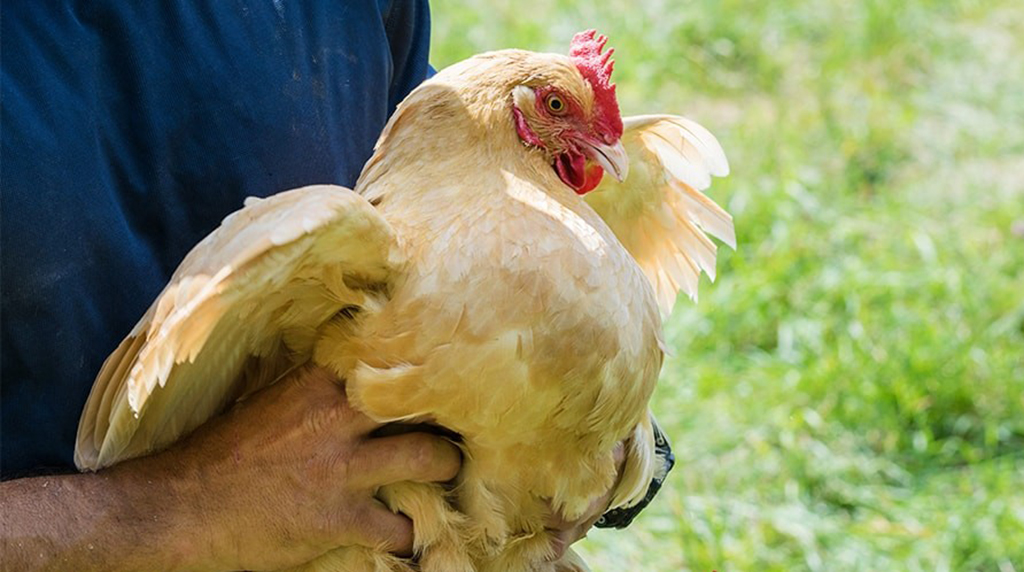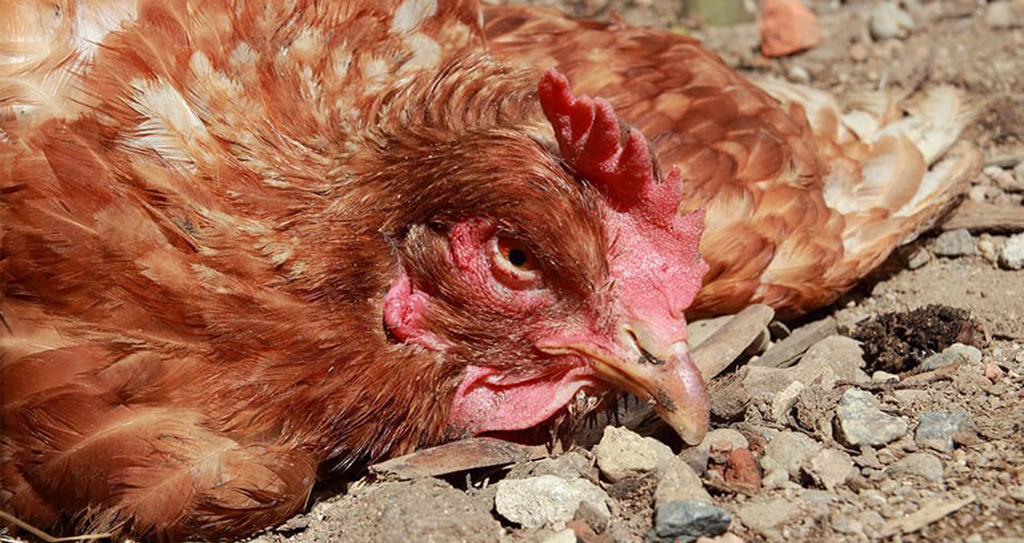
In Part 1 of our Health and Well Being of the Chicken Flock series, we looked at how to tell if your chicken is sick. We also discussed how to check the chicken(s) for any health issues.
In Part 2 we are going to take a look at some of the common causes that could lead to chicken illness and what can be done to prevent them.
If you are a first-time flock owner, looking to become one or even a seasoned one have a read at some of our articles. There is something of benefit for everyone on our site.
CHICKENS AND DISEASES
In a flock of chicken’s diseases can spread really quickly. This is generally because chickens are usually kept in close confinement.
They are always sharing water, food and even dust baths.
Even chickens that tend to free-range will come back to the flock to gather for warmth and to share some form of nourishment.
Sometimes it cannot be helped as there are always outside factors that can bring the disease in. Such as a pigeon roosting nearby. Or sharing the chicken’s feed and water or mingling with them.
Worms and other parasites that live all around us.
SOME COMMON CONTRIBUTORS TO CHICKEN DISEASE:
Poor Management
Overcrowding of the chicken coop
Cleanliness of the coop and run
Quality of the food and nutrients
Pest problem/infestation
Inadequate coop security
Broken water and or food bowls
Inadequate chicken health and or parasite checks
Environment
Poor climate control inside the coop
Inadequate shelter in runs or garden for the chicken’s protection
Poor ventilation/air circulation in the coop
Inadequate roosting facilities
Poor bedding/nesting box hygiene
Damp conditions in the coop and run
Dry dusty run soil with not greenery
Wet muddy run soil
The buildup of chicken droppings
Wet, damp or old floor shavings/covering in the coop
Chickens themselves
New chickens introduced to flock without proper quarantine
Baby chickens introduced to the flock without proper quarantine
Underfeeding of chickens
Inadequate/not vaccinated chickens
Poor grade of chicken/chickens born with weakened immune systems, defects, etc.
PREVENTATIVE MEASURES TO TRY ENSURE A DISEASE-FREE FLOCK
Management
Setup up a routing schedule of daily/weekly/monthly chicken chores
Include regular initial cleaning of the coop, nesting boxes, rails and run
Disinfect the coop, accessories and run at least once or twice a month with a safe solution.
Ensure the water bowls and feeders are always clean
Ensure food and water is freshened at least once or twice a day
Take measures to keep the garden pest and vermin free
Ensure there is adequate space in the coop, run and free-ranging area to house all the chickens in the flock
If keeping roosters, ensure the rooster to hen ratio is adequate to prevent fighting and injuries to hens.
Environment
Free-range chickens should have some sheltered spots to protect against the elements
There should be at least one to two dusty areas or dust baths for the chickens
Chicken droppings should be cleaned away at least three times a week
There should be no sharp wire edges, broken wooden boards or rotting boards in the coop
Ensure that the run fencing is secure and there are no wires jutting out
There should be no rotting foliage in or around the coop and run
All straw or shavings for floor should be changed at least twice a week
Nesting box bedding should be changed at least once or twice a week
The coop should be well ventilated with good air circulation
It should also be adequately insulated
Chickens
Keep a keen eye on your flock and observe their behavior
When cleaning their housing and accessories keep an eye on their dropping
Check the chickens for disease and parasites at least once a week
Make sure the chickens are adequately fed and nourished
Ensure they always have clean fresh water
Top up their drinking water with de-worming/parasite protection at least once a month
Quarantine new chickens, have them thoroughly checked and ensure they have been vaccinated before introducing them to an established flock
Check chickens before you buy them for defects, illness or weakness
Vaccinate
WHAT TO DO IF YOU SUSPECT AN ILL CHICKEN(S)
As we have discussed chickens are quite tricky to ascertain that they are sick. They will hide it until it is too/almost too late.
If a chicken(s) is showing signs of any sorts that they are somehow harmed or unwell you must:
Separate the chicken from the flock immediately – it is best to have a sick coop handy equipped with the necessary accessories.
Examine the chicken – make sure to wear sterile gloves if possible and be very gentle with the chicken.
Do the checks as described in Part 1 of Health and Wellbeing of the Chicken Flock series
Go through the list of known/common diseases, health issues, defects and problems as listed in the article.
Contact your local vet or animal health caregiver. If you feel the chicken is exhibiting any of the signs and symptoms of a disease or illness it is best to get them to the Vet. They will need to examine the bird. Be prepared as they may need to check out the rest of the flock should it be some sort of infection.
Clean out the chicken coop, complete with the nest, floor shavings.
Sterilize and clean all the feeders and waterers.
Check your other chickens to pick up if they have been infected.
If it is an injured chicken, they will also need to remove from the flock immediately. As chickens love to peck at blood and there is no worse sight than seeing what they will do to one of their own that is injured
It is good practice to hose down your garden as well.
COMMON ILLNESSES/DISEASES/PROBLEMS
Conditions that affect the Feathers
Conditions that affect the Legs, Toes and Claws
Conditions that affect the Skin
Conditions that affect the Respiratory tract
Conditions that affect the Vent
Conditions that affect the Gut
Conditions that affect the Digestive System
Conditions that affect the Nervous Systems
Common Diseases
Common Defects and Lethal Genes
END OF PART 2
This is the end of Part 2 of our “Health and Wellbeing of the chicken Flock” series.
Part 3 of the series will discuss conditions that affect the Feathers. Be sure to read Complete Series of Health and Wellbeing of the chicken flock for valuable information and guidance on a chicken’s wellbeing.
 Why Deworming Chickens is Important?
Why Deworming Chickens is Important? Conditions that can affect a Chicken Respiratory System
Conditions that can affect a Chicken Respiratory System Chicken Vaccinations and why they are Important to a Flock
Chicken Vaccinations and why they are Important to a Flock CONDITIONS THAT AFFECT THE A CHICKENS FEATHERS
CONDITIONS THAT AFFECT THE A CHICKENS FEATHERS CONDITIONS THAT AFFECTS A CHICKENS LEGS, TOES AND CLAWS
CONDITIONS THAT AFFECTS A CHICKENS LEGS, TOES AND CLAWS